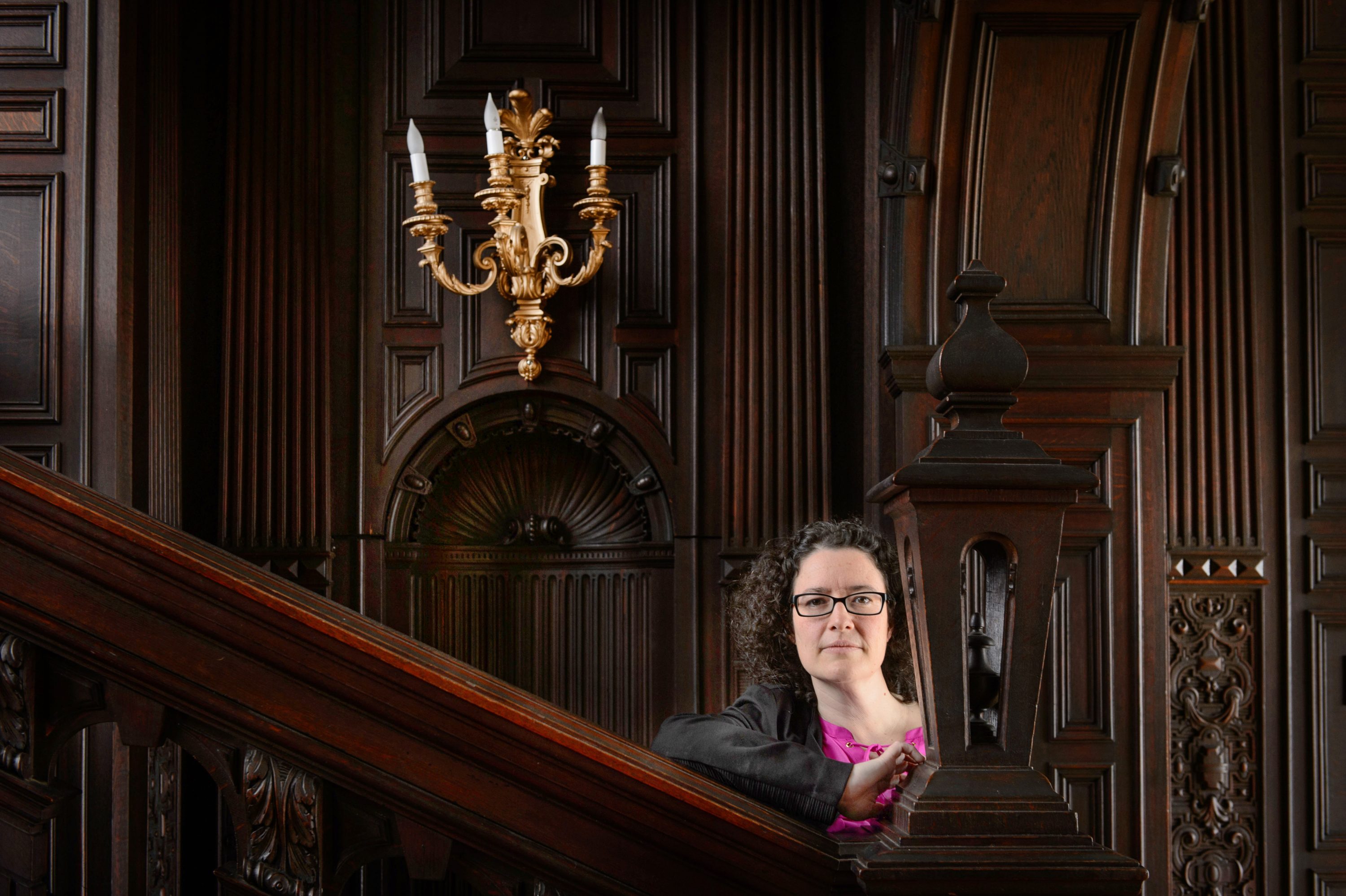The Instructor
Pamela Bedore, associate professor and writing coordinator, Avery Point campus. Bedore’s courses – The Vampire in Literature and Culture and The Monster in Literature and Culture, known affectionately as “Vampire Lit” and “Monster Lit” – have been extremely popular with students. She’s taught all manner of courses, including Stephen King and Cultural Theory; Gender Theory and Genre Fiction; American Detective Fiction; and Modern Canadian Literature (she grew up in Ontario); as well as undergrad staples, such as Freshman Writing; The Short Story; and Poetry.
Class Description
Sherlock Holmes and Comparative Media examines the phenomenon of Holmes both as a literary character in the canon of 60 stories written by Sir Arthur Conan Doyle and as an iconic figure appearing across multiple media, including print, graphic novel, film, and television.
“The question I want to get at,” says Bedore, “is why this character is such a persistent cultural icon. Why are there TV series and movies every year when this is an effete brainiac detective from 1887?
“Writers have been picking this character out and writing new stories around him almost from the beginning. Watson, too, of course. And Irene Adler – she only appears in one story. Moriarty? He only appears in two. Why do those characters get so much prominence in our culture? There are scion societies, who meet and do Holmes quizzes and presentations, all over the country. Why? I’ll hold off on answers and let students ponder these questions.”
Bedore’s Teaching Style
Students will “acclimate,” says Bedore, by reading 10 short stories and all four novels from Doyle’s canon, which comprises 56 shorts and the novels. They’ll also watch the current TV shows “Elementary” and “Sherlock,” and recent movies, such as “Sherlock Holmes,” “Sherlock Holmes: A Game of Shadows,” and “Mr. Holmes.”
By week four, students will have chosen an individual research topic about which they will write 500 to 1,000 words weekly. They will read one another’s work in groups, while continuing to read from Doyle’s canon and the “fanon” – stories by contemporary authors, starring Holmes and crew.
All along, the students are asking those central questions of why the character has endured and what is his impact on popular culture.
“But,” says Bedore, and she may as well be rubbing her palms together, “now we get to the subquestions: Is pop lit subversive or conservative? Is it opium for the masses, or really challenging people to think about issues? What does this text do for us culturally? If you’re a big fan of Sherlock Holmes, what does that mean to your own identity? And what do writers get out of it?”
When and Where
Fall 2016 at UConn Avery Point campus
Why We Want to Take It
Because Bedore consumes knowledge like a vampire, sleuths out fun teaching techniques like a dime store detective, and is fiercely passionate, really funny, and consistently thought-provoking.
Her ardor for her subjects is addictive, contagious. And it takes us to surprising places.
When asked whether she might teach a class called Zombie Lit, she delivered a discourse in what seemed like one breath that began with the fact that her Monster Lit capstone includes zombie literature “because it’s fascinating,” picked up speed when she mentioned how “it’s really easy to think of zombies as consumers,” and ended in a mini lesson on this country’s ongoing financial crisis and the statement, “That’s why they’re called zombie banks and vampire loans.”



